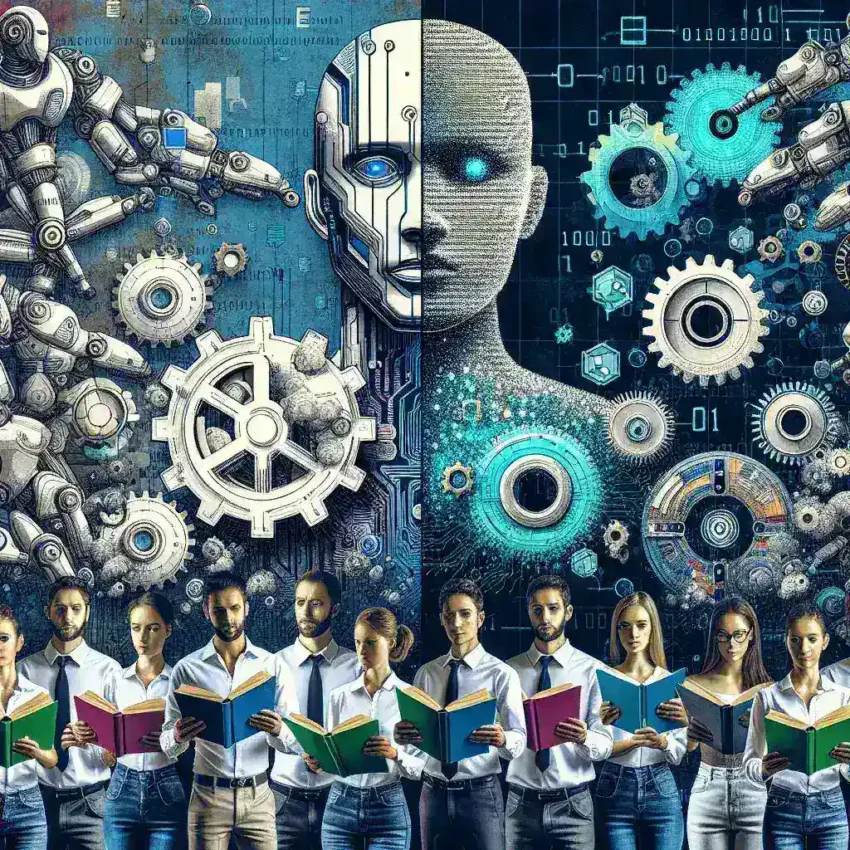Introduction
The proliferation of artificial intelligence (AI) has transformed various sectors, with content creation being one of the most visibly impacted. With Google’s AI capabilities becoming more prominent, publishers are finding themselves at a crossroads, actively challenging the use of AI-generated content. This article delves into the current landscape where publishers are advocating for licensing agreements or regulatory changes to safeguard their rights and interests.
The Rise of AI in Content Creation
AI technology has evolved rapidly, enabling machines to generate written content that closely mimics human writing. Google’s advancements in this field have prompted various discussions about the ethical and legal implications of using such technologies. While AI content generation offers speed and efficiency, it raises critical questions about originality, authorship, and accountability.
The Historical Context
Historically, the content publishing industry has faced challenges from emerging technologies, be it the advent of the internet or the rise of social media. Each transition has required a reassessment of existing frameworks and regulations. As AI-generated content becomes increasingly prevalent, publishers are now seeking a paradigm shift in how content creation is regulated.
Publishers’ Concerns
Publishers have several concerns regarding Google’s use of AI-generated content:
- Intellectual Property Issues: With AI generating content that may inadvertently replicate existing works, issues surrounding copyright and intellectual property rights are paramount.
- Market Impact: The sheer volume of AI-generated content can saturate the market, making it challenging for original creators to gain visibility and monetize their work.
- Quality and Authenticity: AI content often lacks the nuanced understanding and emotional depth that human writers bring, leading to concerns about the overall quality of published materials.
The Push for Licensing Agreements
In light of these concerns, many publishers are advocating for licensing agreements that would require Google to obtain permission before using or generating content based on their work. Such agreements could offer a structured approach to compensating original content creators, ensuring they retain control over how their content is used.
Benefits of Licensing Agreements
Implementing licensing agreements could provide several advantages:
- Revenue Generation: Publishers could receive compensation for the use of their content, potentially leading to new revenue streams.
- Control Over Content: Licensing would grant publishers more authority over how their content is utilized and represented.
- Encouragement of Quality Content: When publishers are compensated fairly, they are more likely to invest in high-quality content creation.
Advocacy for Regulatory Changes
Beyond licensing, some publishers are calling for broader regulatory changes to address the challenges posed by AI content generation. This could involve developing new laws or guidelines that define the use of AI in publishing, aiming to protect the rights of original content creators.
Potential Regulatory Framework
A viable regulatory framework could include:
- Clear Definitions: Establish definitions around AI-generated content and its differentiation from human-created content.
- Transparency Requirements: Mandate that platforms disclose when content is AI-generated, ensuring consumers know the source.
- Copyright Adjustments: Update copyright laws to address the nuances of AI content generation, potentially introducing new categories of protection.
Challenges in Implementation
While the push for licensing and regulation is gaining traction, implementation faces various hurdles:
- Defining AI Content: Establishing a clear definition of what constitutes AI-generated content can be complex.
- Industry Collaboration: Publishers, tech companies, and regulators need to collaborate effectively, which may require significant negotiation and compromise.
- Global Considerations: Since the digital landscape is global, regulatory changes would need to consider international implications and adaptations.
Future Predictions
Looking ahead, the relationship between publishers and AI technology will likely continue to evolve. As AI becomes more integrated into content creation, the following trends may emerge:
- Increased Collaboration: Publishers may partner with AI developers to create hybrid models that enhance content quality while still leveraging AI’s capabilities.
- Emergence of New Standards: The industry may establish new standards for AI-generated content, ensuring ethical use and fair compensation.
- Consumer Awareness: As awareness grows, consumers may demand transparency regarding the origins of content, influencing publishers to adapt their strategies.
Conclusion
The challenge posed by Google’s use of AI-generated content signifies a pivotal moment for publishers. As they advocate for licensing agreements and regulatory changes, the future of content creation hangs in the balance. By addressing these issues head-on, publishers can protect their interests while navigating the complexities of an increasingly automated world. The outcome will not only impact the publishing industry but will also shape the broader conversation around AI and creativity in the digital age.

